

European companies see new chances in China to expand
With the growth of total foreign direct investment in China falling off, the biggest waves of capital inflow may have passed. But the waves still come. Only now, they tend to be smaller or medium-sized and come roaring in from Europe.
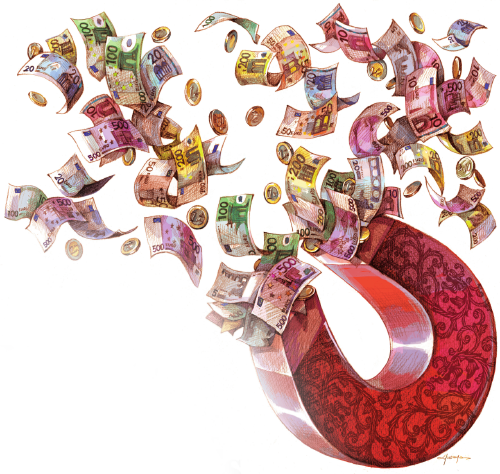
Many expected FDI in China to continue to fall this year, after dropping 3.7 percent year-on-year to $111.72 billion in 2012, but investment from the European Union climbed 30 percent to $2.47 billion in the first four months.
In the first half of this year, foreign investors established 10,630 companies in China, down 9.18 percent year-on-year, while total FDI inflow rose 4.9 percent year-on-year to $61.98 billion, according to the Ministry of Commerce.
The investment surge from the EU is being called the new wave of capital migration and is being ridden largely by small and medium-sized enterprises that have positioned themselves at the head of niche businesses.
"It marks Europe's third wave of overseas investment," Piter de Jong, vice-chairman of the European Union Chamber of Commerce in China, told the South China Morning Post. "The first two waves were made some 20 to 30 years ago from, first, the state-owned enterprises and later big private corporations. Now it is the turn for SMEs."
SMEs recently looking to enter China include small autoparts suppliers, green technology firms and consumer goods distributors, and De Jong expects more to come.
Why they come varies from company to company, but it is now less to do with labor and operation costs and more to do with technological innovation and improvement.
Not so long ago, Thomas Pester, owner of Pester Pac Automation GmbH, a German packaging machine maker, would never have thought about expanding his 125-year-old family business to China, especially during difficult economic times.
Now he is building a new plant in Shanghai's Songjiang district, the only other plant outside his home market, to serve the pharmaceutical and cosmetics industries in China and neighboring countries.
"Every company must find out for itself when and why to invest," Pester says. "For us, a family-run business, it's quick and easy to make decisions."
It was made easier when Pester realized China was home to 5,000 pharmaceutical companies and the market remained one of the few bright spots for growth during the global economic downturn.
"Nowadays, European markets are largely saturated and have stagnated, which propelled us to look for new areas of growth. The BRICS nations (Brazil, Russia, India, China and South Africa) are definitely where new businesses would take place," he says.
"I would say the market access in China is much easier today compared with 15 years ago when everything was a bit unknown and unexpected. You find yourselves better located, where the number of English speakers has picked up dramatically, and you find flights to China are more frequent than before."
Pester Pac has supplied more than 7,000 film-wrapping, case-packing and palletizing machines to companies around the world, including Colgate-Palmolive Co and Johnson & Johnson Inc.
Pester believes that the tide of investment has now turned in favor of smaller established European companies who, inspired by the success stories in China of their bigger counterparts, have been flexing their muscles on the side, awaiting their turn.
 Models at Ford pavilion at Chengdu Motor Show
Models at Ford pavilion at Chengdu Motor Show
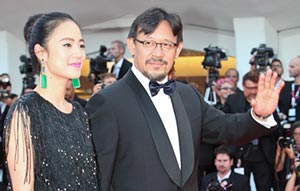 Brilliant future expected for Chinese cinema: interview
Brilliant future expected for Chinese cinema: interview
 Chang'an launches Eado XT at Chengdu Motor Show
Chang'an launches Eado XT at Chengdu Motor Show
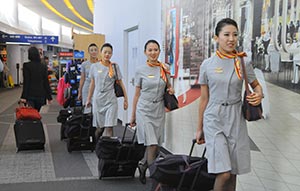 Hainan Airlines makes maiden flight to Chicago
Hainan Airlines makes maiden flight to Chicago
 Highlights of 2013 Chengdu Motor Show
Highlights of 2013 Chengdu Motor Show
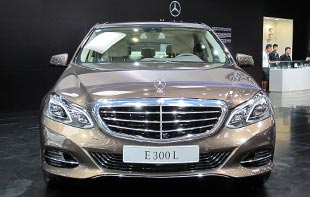 New Mercedes E-Class China debut at Chengdu Motor Show
New Mercedes E-Class China debut at Chengdu Motor Show
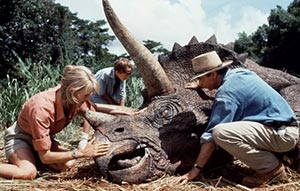 'Jurassic Park 3D' remains atop Chinese box office
'Jurassic Park 3D' remains atop Chinese box office
 Beauty reveals secrets of fashion consultant
Beauty reveals secrets of fashion consultant